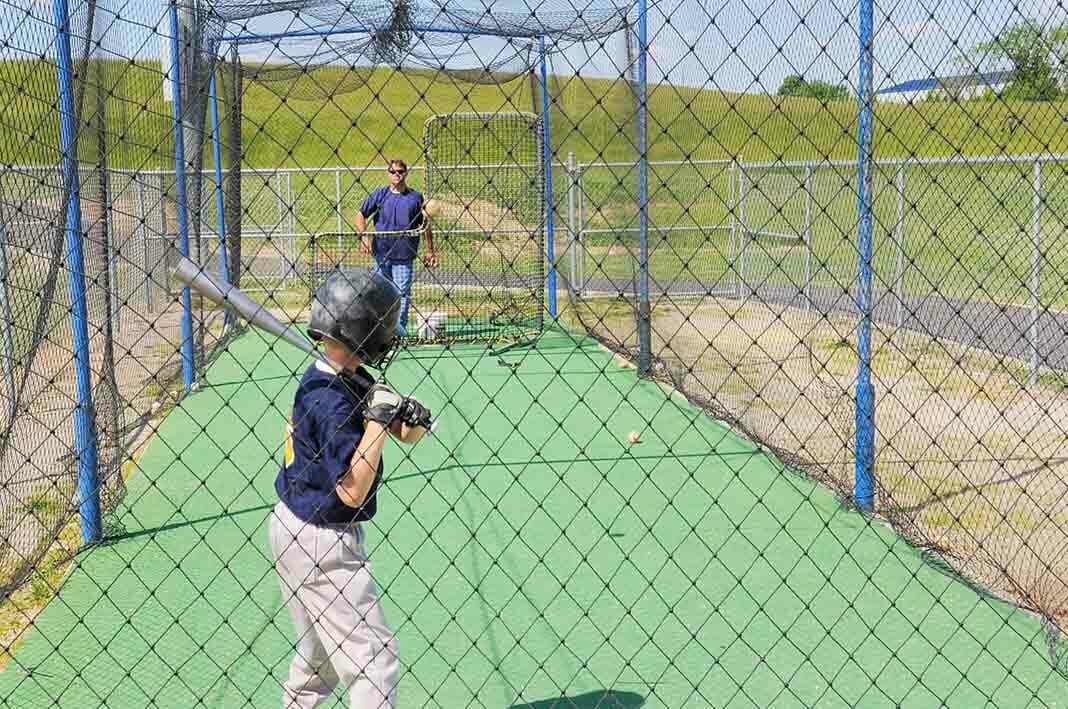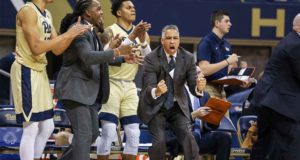If you’re a consistent listener of The Upside Podcast, then you’ve probably noticed that I often ask guests, especially college coaches, about their favorite books.
There are a lot of very successful coaches who are also avid readers, and given the chance to pick their brains, I find it interesting to find out what resources these leaders and high-achievers are utilizing for personal development and intellectual curiosity.
Pat Chambers cited Mindset by Carol Dweck.
Shaka Smart recommended The Untethered Soul by Michael Singer.
Mick Cronin said he reads The Art of Influence by Chris Widener almost every year.
Kenny Blakeney mentioned Outliers by Malcolm Gladwell.
Books aren’t just a favorite topic on the podcast, but sometimes among coaches themselves, especially in more typical times when they’re traveling the recruiting circuit together.
There’s definitely some required reading among the most forward-thinking coaches, and Gladwell’s work is almost always on the list. Many of the themes and theories he explores, particularly in Outliers, have helped shape behavior across multiple disciplines, coaching included.
Perhaps the most well-known of those is the 10,000 hour rule, or principle as Gladwell now refers to it, which essentially contends that it requires roughly 10,000 hours of deliberate practice to achieve greatness and thus that talent alone is not sufficient, or even potentially the most important requisite (Bill Gates, the Beatles, and others are cited as examples).
For many coaches, at all levels, this was an academic validation of their belief that a player’s production came in direct correlation to how hard they worked. In other words, it fed the mindset that practicing longer and harder was the way to ensure success.
Now, the 10,000 rule has been highly scrutinized in the 12 years since Outliers was published. It was based on the research of psychologist Anders Ericsson, who ironically publicly disagreed with Gladwell’s interpretation of his work before recently passing away.
In 2014, there was a Princeton study that seemed to disprove the initial findings. More recently, even Gladwell himself has said that his work and contention were misinterpreted, and has specifically stated that he doesn’t condone the extension of the principle into the sports world.
My intention here is not to add to the already significant amount of voices along those lines, but instead to explore the validity of the 10,000 principle, by introducing the work of another academic, David Epstein, who may not be as universally well-known has Gladwell yet, but whose research provides some very relevant context.
Epstein has written two books– The Sports Gene, which investigates the relationship between personal genetics and extraordinary athletic performance, and Range, an argument for generalists, diverse experiences and opportunities for groups and individuals across multiple disciplines, including athletics.
Epstein and Gladwell have even gone on to publicly debate on more than one occasion, including twice at MIT’s Sloan Sports Analytics Conference and so when I began to read Range, my expectation was that it would conflict with Gladwell’s work unilaterally. That was actually part of the reason I was interested, since it seemed to present a bit of a contrarian opinion given how the 10,000 rule had fueled arguments of specialization in sports, and youth sports in particular.
Instead though, I found there was actually quite a bit of common ground between Epstein and Gladwell, and there are implications for coaches at multiple levels because of it.
The overlap of their respective research and contentions center around two key variables – the type of field, or practice, you are engaging in and the outcome you are trying to optimize for.
While Epstein’s work is generally a recommendation for versatile experiences and learning opportunities over narrow practice, one of the first variables he defines is the difference between kind and wicked learning environments. In kind learning environments, there are defined rules, patterns tend to repeat themselves, and feedback is consequently very accurate and rapid. Conversely, wicked learning environments have unclear or incomplete rules, no repetitive or obvious patterns, and delayed or inaccurate feedback.
The majority of his book focuses on the latter, but most sports actually fall under the former, which is why his work and Gladwell’s can co-exist more often than not when being applied to sports.
Sports have defined rules and very few teams play completely unprecedented styles. The process of a player’s individual development typically offers direct and immediate feedback along the way. In fact, you often hear the phrase “the game tells you how hard you’ve worked.”
While the 10,000 number may ultimately be somewhat arbitrary (which is the most frequent contention among the principle’s critics), Epstein agrees with Gladwell that in kind learning environments, deliberate practice works. This falls in line with our normal logic and reinforces the “practice makes perfect” line of thinking.
The second variable – the outcome you are trying to optimize for – is really a question of timing in the sports world. For basketball specifically, trying to maximize recruiting opportunities can more or less be distilled down to maximizing a player’s abilities by the time they’re a high school senior.
Conversely, if the goal is ultimately to develop into the best player possible with long-term aspirations, then a singular data-point around 18 years old is a very premature marker (as the late progression of current NBA stars like Kawhi Leonard, Steph Curry, Giannis Antekokounmpo, Dame Lillard, Ja Morant, and a host of others can all attest for).
Another interesting aspect of Epstein’s research is that it cites several examples suggesting that versatile experiences can still be beneficial, even in kind learning environments like sports, if the goal is truly long-term development. Tennis great Roger Federer, whose parents refused to let him specialize in tennis early on despite the fact that his mother was a tennis coach, is the most prominent example while there are others from youth soccer programs around the world.
Gladwell and Epstein would seem to be aligned that if the goal of maximizing college recruiting opportunities in a particular sport was the goal, then deliberate practice and some form of specialization might be beneficial. However, if the goal is more long-term development, than more versatile experiences and learning environments would be more beneficial for a variety of reasons (not the least of which is injury prevention, which is a separate exploration in and of itself).
Ultimately, the 10,000 rule/principle may be an imperfect one, but the basic premise behind it remains valid and as relevant as ever in the world of sports.
Talent is critical but without deliberate practice, it doesn’t necessarily equate to success, especially as the level of competition increases. Hard work does count, and the quality and quantity of it matters. That principle gets more complicated in correlation to the task at hand, but in sports, it’s a more direct relationship than in more complex domains.
Perhaps the biggest caveat though, is that the timing of the ultimate goal is very relevant and the farther away that goal is, the more versatile the training approach should potentially be.


















